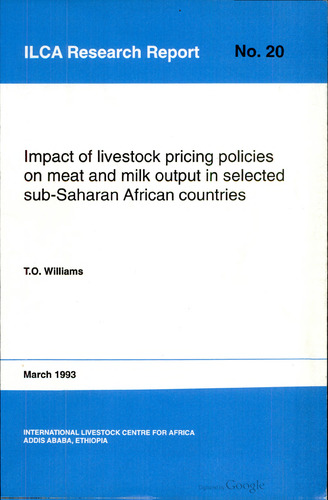Impact of livestock pricing policies on meat and milk output in selected sub-Saharan African countries
Abstract
Livestock pricing policies in many developing countries are often instituted without a good appreciation of the consequences of such policies for allocative efficiency, output, trade and consumption. This paper evaluates, in a comparative cross-country context, the objectives and instruments of livestock pricing policy in five sub-Saharan Africa countries: Cote d'Ivoire, Mali, Nigeria, Sudan and Zimbabwe during the period 1970-86. It examines the extent to which pricing policy objectives have been attached and estimates the effects of price interventions on output, consumption, trade and government revenues in order to draw out lessons for the future. The empirical results indicate that in comparison with real border prices, a certain degree of succcess was achieved in estabilishing real domestic producer prices in the study countries. However, consumers still appear to gain as much as producers in three of the study countries, which negative consequences for foreign exchange earnings and government revenues. The analysis reveals the importance of domestic inflation and exchange rates as key variables for livestock pricing policies and highlights the need to address the macroeconomic imbalances that cause exchange-rate distortions and high domestic inflation at the same time that direct price distortions are being tackled.

